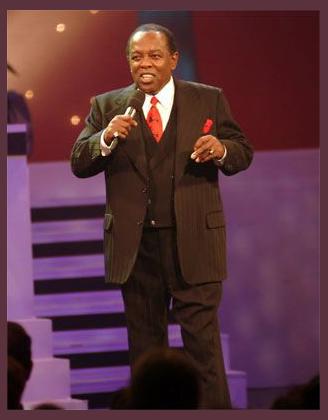 Lou Rawls
Lou Rawls
Lou Rawls: A Soulful Legacy
Emerging from the vibrant streets of Chicago, Lou Rawls rose to prominence as an iconic vocalist with an unparalleled voice that resonated deep within the hearts of music lovers. His signature tune, "You'll Never Find Another Love Like Mine," became an enduring anthem of love and devotion, capturing the essence of his soulful and romantic style.
Early Life and Influences
Born in 1933, Louis Rawls Jr. grew up immersed in the sounds of gospel and blues. As a young man, he honed his vocal abilities singing in church choirs and local talent shows. Influenced by the likes of Nat King Cole and Sam Cooke, Rawls developed a rich and resonant voice that exuded warmth and emotion.
Career Breakthrough
In the early 1960s, Rawls signed with Capitol Records and released his debut album, "Stormy Monday." While his initial success was modest, it paved the way for his breakthrough album, "Love Is a Hurtin' Thing," in 1966. The album featured the soul-stirring ballad "You'll Never Find Another Love Like Mine," which catapulted Rawls to international fame.
Challenges and Controversies
Despite his musical triumphs, Rawls faced personal challenges throughout his career. His struggles with alcohol and drug addiction threatened to overshadow his talent. However, he eventually overcame these obstacles with the support of his family and friends.
Discography and Collaborations
Rawls released over 40 albums throughout his storied career. His discography spans a wide range of genres, including soul, R&B, jazz, and even gospel. He collaborated with numerous notable artists, such as Sammy Davis Jr., Tony Bennett, and the Pointer Sisters.
Members and Legacy
Lou Rawls was a solo artist throughout his career, but he was often supported by a talented backing band. His long-time collaborators included pianist Gene Harris and bassist Chuck Rainey.
The legacy of Lou Rawls continues to inspire and captivate music lovers worldwide. His timeless voice and heartfelt songs have etched his name indelibly in the annals of music history. As a testament to his enduring impact, he was posthumously awarded the Grammy Lifetime Achievement Award in 2013.
Emerging from the vibrant streets of Chicago, Lou Rawls rose to prominence as an iconic vocalist with an unparalleled voice that resonated deep within the hearts of music lovers. His signature tune, "You'll Never Find Another Love Like Mine," became an enduring anthem of love and devotion, capturing the essence of his soulful and romantic style.
Early Life and Influences
Born in 1933, Louis Rawls Jr. grew up immersed in the sounds of gospel and blues. As a young man, he honed his vocal abilities singing in church choirs and local talent shows. Influenced by the likes of Nat King Cole and Sam Cooke, Rawls developed a rich and resonant voice that exuded warmth and emotion.
Career Breakthrough
In the early 1960s, Rawls signed with Capitol Records and released his debut album, "Stormy Monday." While his initial success was modest, it paved the way for his breakthrough album, "Love Is a Hurtin' Thing," in 1966. The album featured the soul-stirring ballad "You'll Never Find Another Love Like Mine," which catapulted Rawls to international fame.
Challenges and Controversies
Despite his musical triumphs, Rawls faced personal challenges throughout his career. His struggles with alcohol and drug addiction threatened to overshadow his talent. However, he eventually overcame these obstacles with the support of his family and friends.
Discography and Collaborations
Rawls released over 40 albums throughout his storied career. His discography spans a wide range of genres, including soul, R&B, jazz, and even gospel. He collaborated with numerous notable artists, such as Sammy Davis Jr., Tony Bennett, and the Pointer Sisters.
Members and Legacy
Lou Rawls was a solo artist throughout his career, but he was often supported by a talented backing band. His long-time collaborators included pianist Gene Harris and bassist Chuck Rainey.
The legacy of Lou Rawls continues to inspire and captivate music lovers worldwide. His timeless voice and heartfelt songs have etched his name indelibly in the annals of music history. As a testament to his enduring impact, he was posthumously awarded the Grammy Lifetime Achievement Award in 2013.